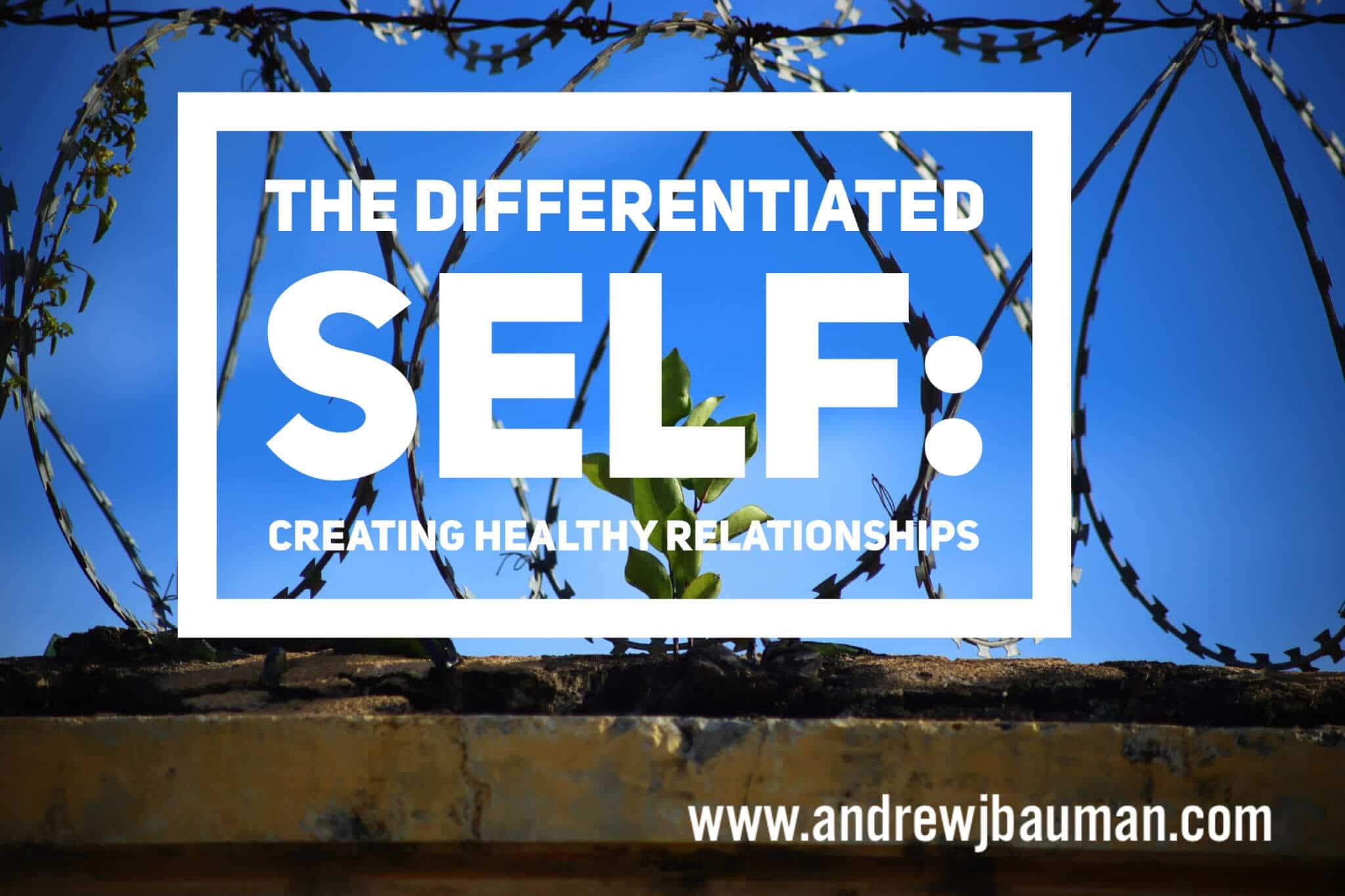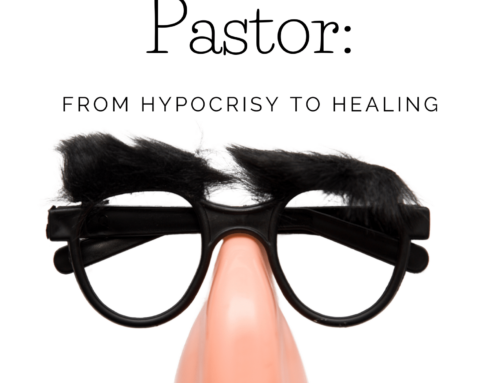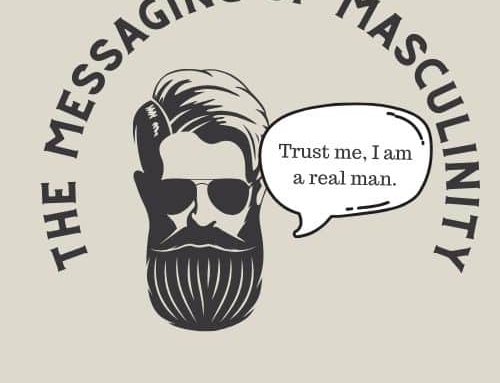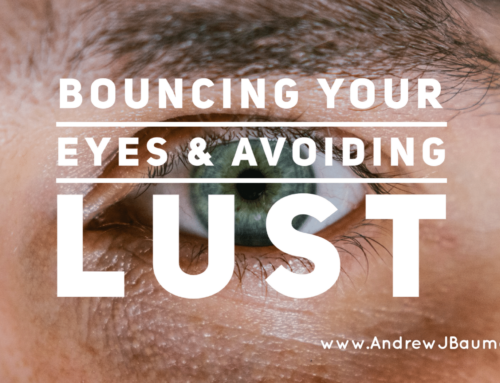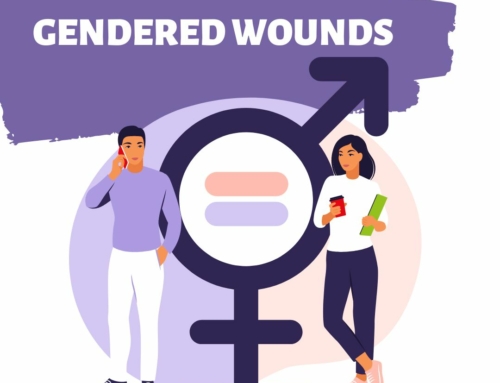What does it mean to love someone without being emotionally enmeshed? How can we be solid within our own true self without other people’s decisions completely shaking our foundation? Here I discuss the concept of differentiation and how it impacts relationship.
The Differentiated Self: creating healthy relationship
Andrew J. Bauman
The term “differentiation” has recently come up in my own individual therapy as one of the core issues that I must address within myself. My hope in this article is not only to discover what it means to be well differentiated but why it’s important for us to understand its complexities.
As I reflect on my own life I remember scenes where someone else’s decision (whether good or bad) totally took me out. Days of crying myself to sleep, weeks of disorientation and numbness, months of depression; this has happened within my own family relationships, interpersonal relationships, romantic relationships and also organizational ones. I am realizing what Kerr and Bowen said nearly 30 years ago that “poorly differentiated persons tend to be more emotionally reactive” (p. 320) is completely true of me. Why do I allow other people’s feelings, opinions, decisions to have so much power over my own? How do I (and we) learn to be well differentiated? Seems not only an important question to answer but a vital remedy to continuous patterns of heartbreak.
Skowron and Freidlander (1998) refer to “Differentiation of self is defined as the degree to which one is able to balance (a) emotional and intellectual functioning and (b) intimacy and autonomy in relationships (Bowen, 1978). On an intrapsychic level, differentiation refers to the ability to distinguish thoughts from feelings and to choose between being guided by one’s intellect or one’s emotions” (Bowen, 1976, 1978). Basically, differentiation means a healthy separation of one’s self.
When a rupture happens we tend to immediately turn inward towards self-contempt or outward to blame, to shared contempt (other-centered contempt) as an effort to get the dysfunction outside of ourselves as quickly as possible. Neither of these options are helpful solutions to the core issue of emotional enmeshment and triangulation, thus the need for discovering how to attain healthy differentiation.
Emotional enmeshment and triangulation are subtle forms of abuse and consequently more difficult to address because of their subversive nature. The easiest form of triangulation/enmeshment to recognize is that of Parent/Child/Parent (Note: Emotional triangles can happen anywhere, read Edwin Friedman, A Failure of Nerve, Chapter 7, if you want a more in-depth reading on emotional triangles). Dr. Allender also talks about triangulation in his new book, Healing the Wounded Heart (2016), in referring to the origins of Parent/Child/Parent enmeshment he writes, “It is a simple equation: to the extent there is a loss of intimacy, passion and purpose with one’s spouse the higher the probability a child will be used as a spousal replacement.” We find ourselves lured into these triangulated relationships because we have a holy desire to be included, affirmed and loved. At first, these relationships give life and the promise of hope fulfilled, but over time the emotional drainage serves to only take our very life away.
A metaphor of differentiation that is helpful is that of a raging river. Imagine a loved one who is caught in the raging rapids. Maybe they are in the throngs of addiction, maybe just incredibly depressed or lonely, but regardless they are drowning. Of course, our first instinct is to jump in and rescue them, thinking that is what love looks like. But if you jump into the raging river you too will surely be sucked into the torrent and swept away by the rapids. That is not love, but suicide. True love and proper differentiation is to stand on solid ground, with feet firmly planted on the water’s edge, with your arm reaching out towards your loved one, allowing them to swim towards your hand when they are ready to receive the help they long to attain.
So what do you do if you notice you are involved in an emotional enmeshed and triangulated relationship? We must first not turn against ourselves or the other. Whether we are initiating the unhealthy relationship or merely caught in the web of it, we must be gentle and kind to the why we got into the relationship in the first place. Second, we must have the courage to name and address what needs to be changed within our own heart, and not focus on what we hope to change in the other people involved. Why were you drawn to this type of relationship? What core needs are you attempting to meet by being triangulated or promoting a triangulated dynamic? What does the quality of the relationship say about you?
And finally, we must reclaim a strong sense of self. Do you know who you are separate from the blessing or curse of another? Do you know your place in God’s Kingdom? We must have a deeply anchored sense of who we are, rooted in who God has called us to be. If not, we can be seduced away by well-intentioned folks who unconsciously wish to divert us so they can get they own emotional needs met.
Being well differentiated does not mean being emotionally closed off or cold hearted, but quite the opposite. It means being so in touch with how you feel and why you feel it, that you make the difficult choice of doing what is best for you. This is not a selfish act; knowing what emotions are yours to bear and which emotions are not, are a sign of emotionally maturity and growth.
| References
Bowen, M. (1976). Theory in the practice of psychotherapy. In P. J. Guerin, Jr. (Ed.), Family therapy: Theory and practice (pp. 42-90). New York: Garner Press. Bowen, M. (1978). Family therapy in clinical practice. New York: Jason Aronson. Skowron, E. A., & Friedlander, M. L. (1998). The Differentiation of Self Inventory: Development and initial validation. Journal of counseling psychology, 45(3), 235.
|
